Even before the millions of everyday carry (EDC) pocket dump photos started popping up on social media, knives have been a common everyday tool. Young boys receive their first knife as a rite of passage, and more women are becoming acclimated to carrying knives everyday for protection and necessity.
In my line of work, I’ve handled a variety of knives from many companies. Ranging from truly impressive to mediocre, I’ve gained the hands-on experience to know a good knife when I see one. However, it doesn’t take years of blade enthusiasm or expertise to understand if the knife you’re holding is good enough to “make the cut.” It’s either sharp and durable or it’s just metal taking up space in your pocket.
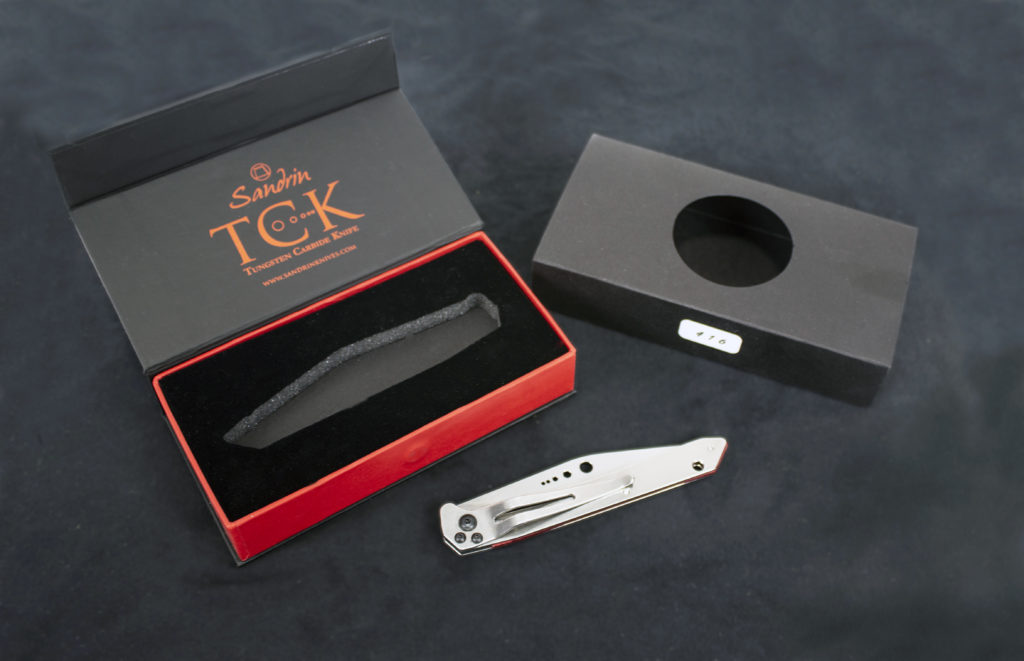
When I receive a new knife, the first thing I do is test for sharpness. A simple paper-cutting test will tell you more than you’d think. Simply take a piece of loose-leaf paper in one hand and cut down the center in one smooth, continuous motion. A sharp knife should cut from top to bottom without catching. If a knife catches or leaves snags/jagged edges, this is an issue.
I recently discovered a knife that not only cut clean through the paper test, it also holds its own among EDC knives: the TCK (Tungsten Carbide Knife) 416 by Sandrin. Sandrin is a division of Cabot Guns and brings innovations to the knife realm just as Cabot does with 1911s. The TCK 416 is incredibly thin (4.5mm) and lightweight (2.18 ounces). Although an ultra-slim gentleman folder is nice, the “cool” factor of the TCK is all in the blade. The blade is perfectly, measurably parallel. The circles on the blade are measured in the Fibonacci sequence (1, 1, 2, 3, 5, 8) in both diameter and from the center of one circle to the next. If you’re not a math person, just know that’s actually pretty incredible.
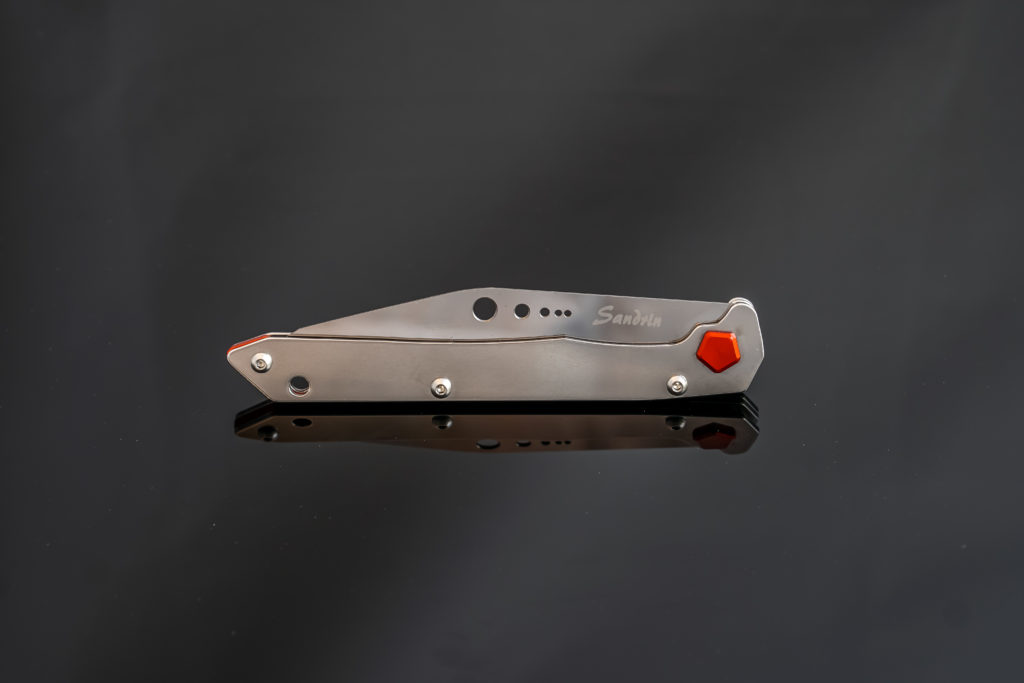
The TCK is not made of steel or ceramic. Instead, it’s made from a completely new blade material that is superior to both. This is where the fascination lies. You have to wrap your brain around the science — or “magic” — of it all, which began in Italy.
Sandrin is the brand name for knives manufactured by its parent company, Turmond. Turmond is a second generation family business that has been working with tungsten carbide for more than 40 years. They dominate the global cutting blade market and have intensely studied the science of cutting in controlled applications that other knife makers cannot. Allessandro Colombatto, the creator and director of Sandrin Knives, started grinding carbide at the age of 12. By age 24, he started crafting tungsten carbide blades for industrial high-speed cutting applications. Behind the TCK is measurable, proven science.
Tungsten carbide has been used for industrial wear purposes — such as the hulls of ice breakers and seals for oil pipes that sit miles below the ocean — but traditional grades of tungsten carbide will shatter like ceramic. Sandrin uses a patented method of sintering a proprietary grade of polyhedral tungsten carbide from particles of tungsten, carbide, and cobalt, making their blades hard and not brittle. Most steel knives have a hardness from 52 to 57 on the Rockwell scale, which is considered high. The TCK has a hardness of HRC 71.
In addition to superior hardness, polyhedral tungsten carbide doesn’t rust and allows the TCK to retain an edge unlike any other blade — it will never require sharpening. You can, however, sharpen a steel knife with the top edge of a Sandrin blade. Tungsten carbide is the hardest metal on Earth — the only thing harder is the mineral diamond.
I’ve been carrying the TCK 416 for approximately six months, and it lives up to its reputation. This isn’t merely hype, it’s literal science, which is what makes the TCK so fascinating. Rob Bianchin, president and founder of Cabot Guns, echoed the sentiment: “I have been using my TCK for a year, opening boxes on a daily basis, and I can still shave with it. It remains razor sharp!”
Razor sharp is not an exaggeration. Regardless of experience level, handle the TCK 416 with care. This is a seriously sharp knife in a slim, lightweight package. If you remain mindful of its capabilities and level of sharpness, this could be a great EDC — especially with a reasonable MSRP of $149 and a lifetime guarantee.
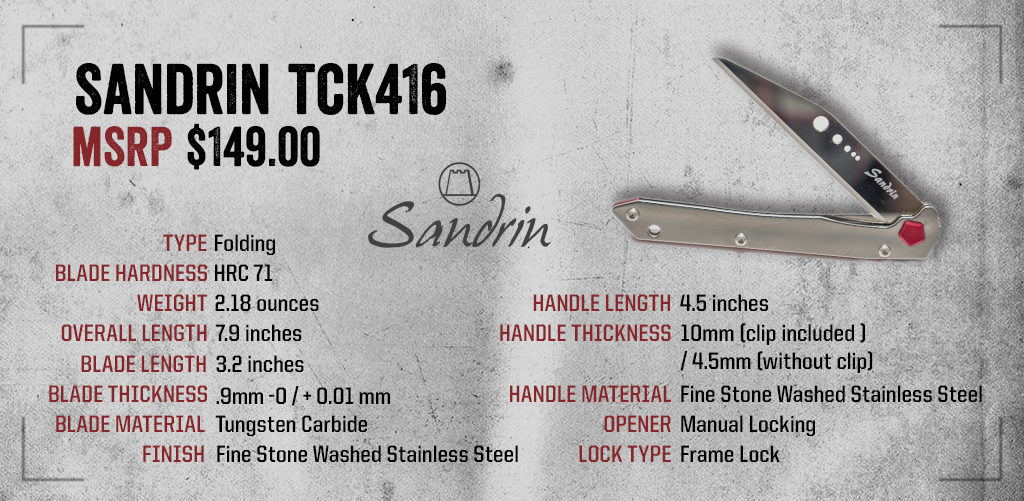
This article was originally published June 17, 2019, on Coffee or Die.

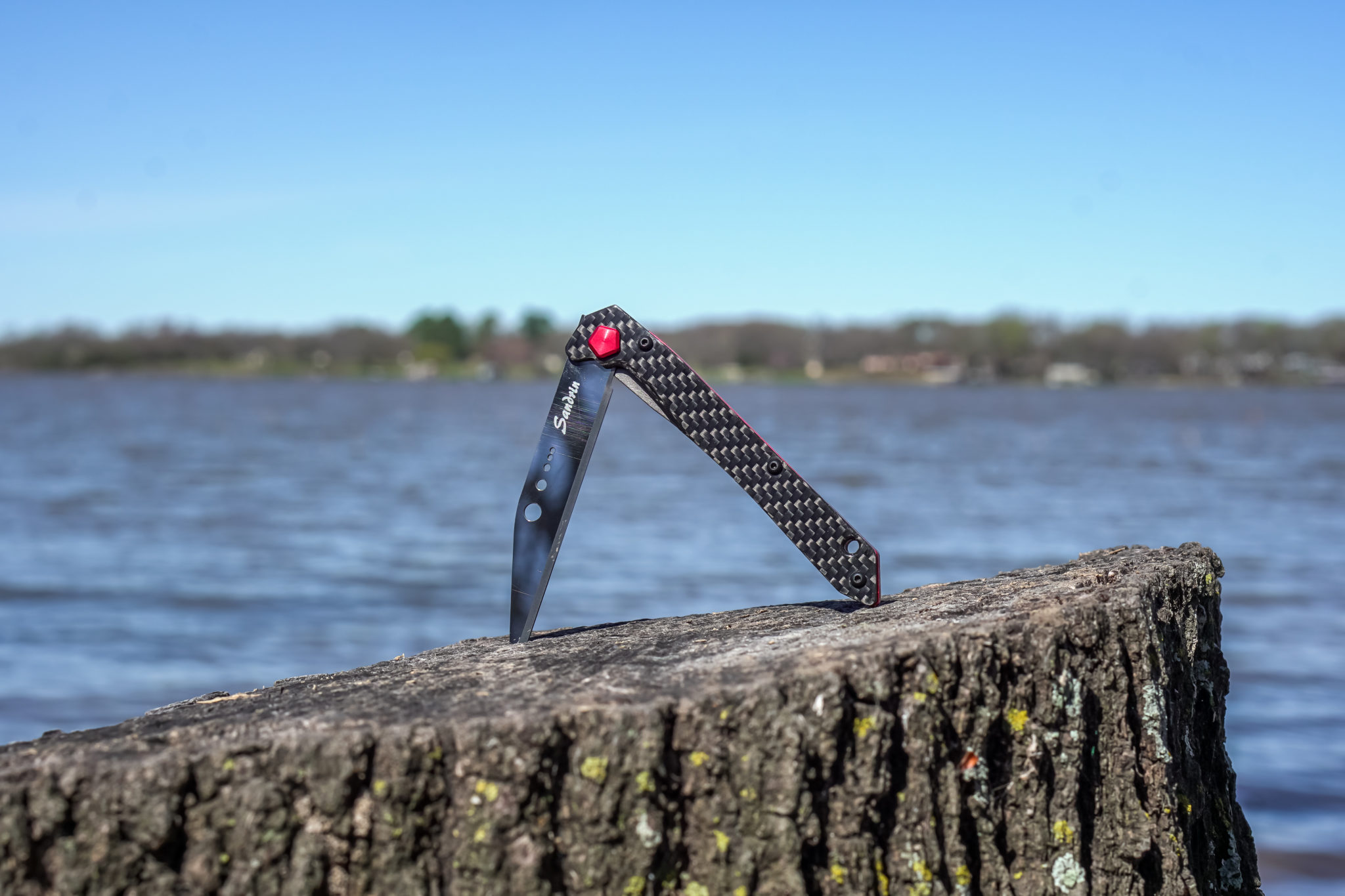

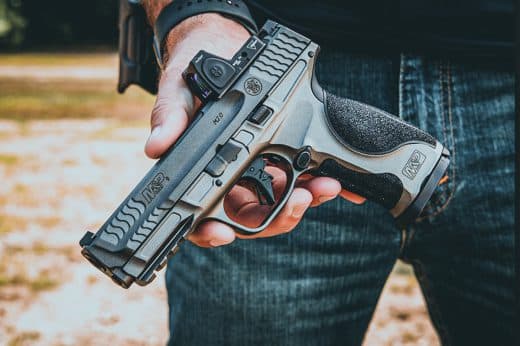

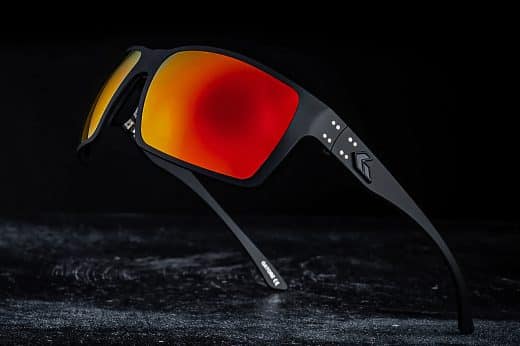


Comments